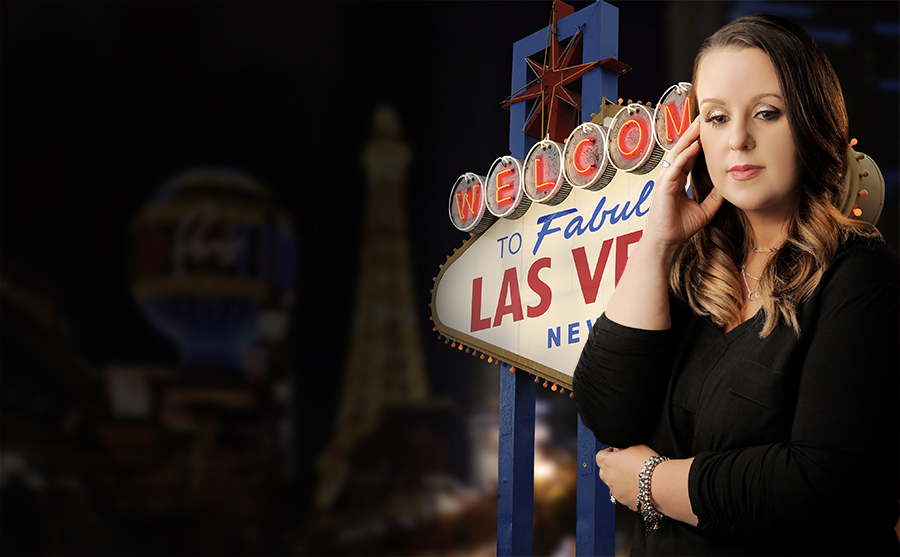Surviving day by day
Therapy, family, and friends help woman cope with Vegas shooting trauma.
Becca Laws remembers a white purse on the ground with lip gloss and a wallet spilling out. Nearby, a wheelchair with an oxygen tank on the back was empty. Shoes slipped from the feet of panicked runners filled a concert field. One boot was left behind.
These small snapshots are just as indelible for Becca as the big picture of a horrific Sunday night in Las Vegas: The smell of gunpowder. A first-aid tent that looked like a MASH unit. Bleeding bodies on the ground. And people dying.
Becca, of Weirsdale, and friend Shelley Mallory, of Belleview, were enjoying a country music festival Oct. 1, 2017, when a man perched in the window of a hotel opened fire on a crowd of 22,000 people. Shooter Stephen Paddock killed 58 people and wounded more than 400 others before killing himself, according to news reports.
It’s the deadliest mass shooting in U.S. history, and six months later, Becca still finds it unbelievable that she was involved in it.
“When it started, I was laying there going, ‘This isn’t happening. This isn’t real,’” she says. “It was a war zone. I literally was in a war zone.”
For 10 minutes, Becca and Shelley zigzagged across that field—the “kill box,” as some called it—hitting the ground during the da-da-da-da-dat gunfire and running in between rounds.
“There were people hysterical on the ground, crying, (they) couldn’t move…paralyzed, hyperventilating, freaking out. I mean, people were just screaming,” Becca says.
Eventually, they reached a parking lot and found an off-duty officer who drove them through the chaotic streets of the Vegas Strip to the police department. Adrenaline and fear kept them awake all night until they were sure the nightmare was over.
“Normal” may never again mean the same thing in Becca’s life. She feels survivor’s guilt, even while understanding it’s human nature to run for your life in such a situation.
“We stepped over people bleeding to death,” she says. “Could I have helped somebody? I don’t know. But I knew I could save myself. And I feel bad about that.”
Becca’s husband, Randy, arranged a therapy session for her the day after she returned home.
“And that was the first time I cried,” she says. “My biggest thing was, what if I didn’t come home? How would my family feel?”
Those first couple of months were difficult for Becca, who has two teenage daughters, Katelynn and Liv, and works part time in The Villages. The family lives on land where people shooting target practice is common, and Becca is a gun owner who has shot her whole life. But one day the sound of rapid-fire gunshots from a nearby property made her instinctively jump out of bed and get down on the floor.
She had a panic attack the first time she went out by herself at night, and she looks at people more warily. Other mass shootings, like the one in February at the Parkland high school, trigger anxiety.
Through therapy and talking about the shooting, both she and Shelley are feeling better each day, Becca says. She’s found a lot of support from family and friends.
“Therapy helps everybody, I think,” Becca says. “It really makes a difference. I think talking about it when you’re ready helps.”
Far from blocking out the trauma, Becca watched everything she could find about the Vegas shooting, even searching for the shooter’s death photos so she could see for herself that he was dead.
“If I would’ve had the chance to kill him myself, I would have,” she says. “And I’m glad he’s dead.”
The shooting hasn’t changed her views on gun laws.
“People are going to get guns illegally no matter what,” Becca says. “Why take rights away from people that do the proper steps and have background checks to protect themselves? Nothing could’ve changed this situation. He was a sick man and he was going to do what he intended to do. I think maybe they should look into helping people with mental health problems.”
But the shooting has changed her view of the world around her.
“I’m thankful I get to see my kids grow up,” Becca says. “It does change the way you feel. You appreciate little things. You appreciate being able to go to your kids’ track meets, going to see their dance performances. You might not have been able to do that anymore.”
However, the music fan and avid concert-goer has not attended any big events since Vegas.
“I say that often to my husband: ‘I hope I get to the point where I can go to another concert,’” Becca says. “That’s a goal of mine.”

